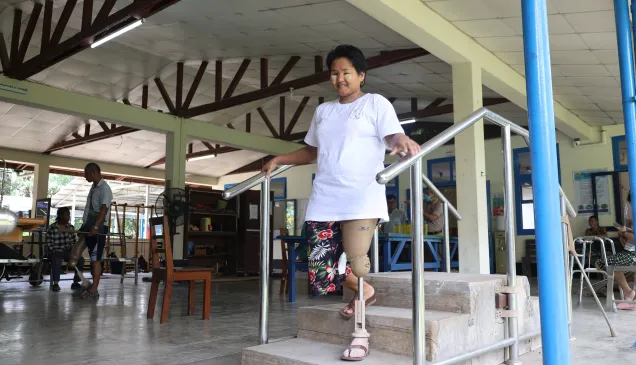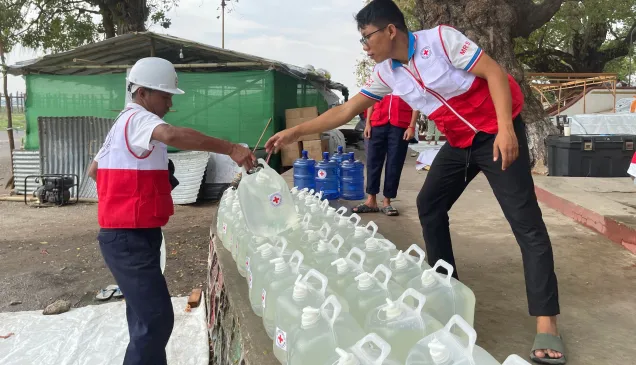Myanmar: Hpa-An Orthopaedic Rehabilitation Centre marks 20 years
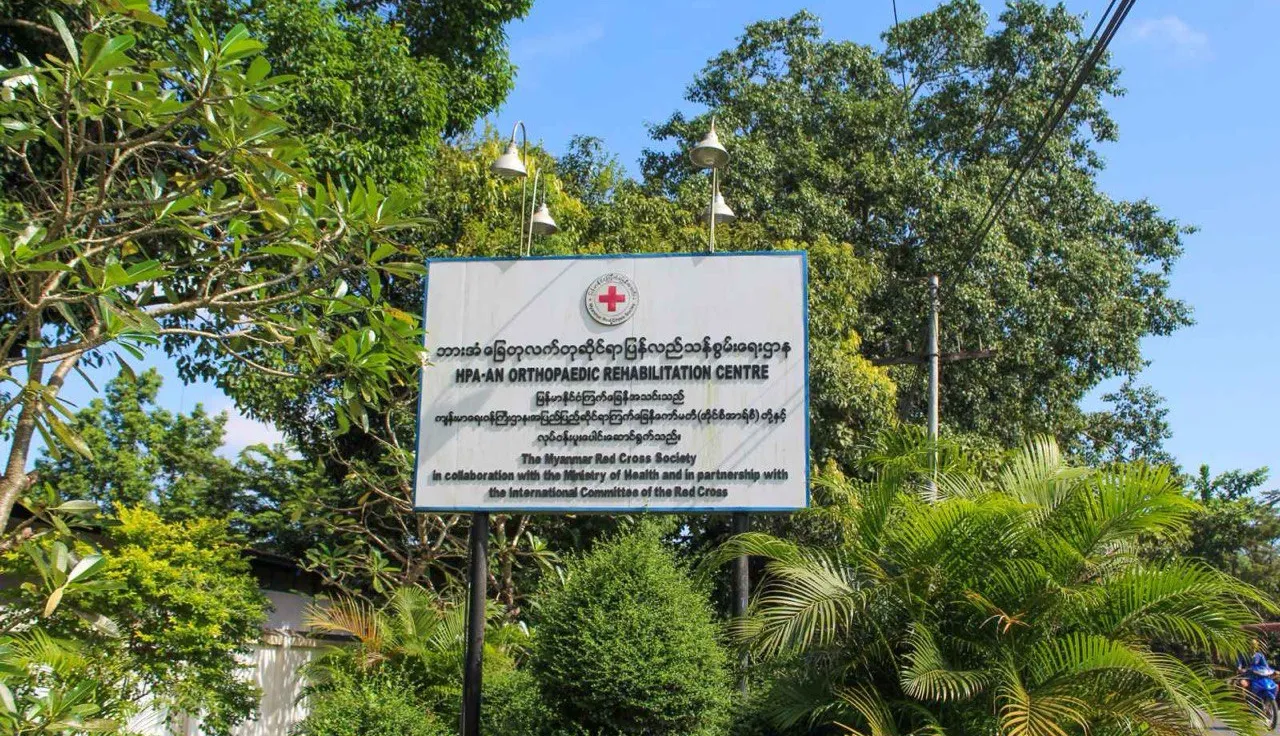
In the heart of Myanmar's Kayin State, the Hpa-An Orthopaedic Rehabilitation Centre (HORC) has been serving the community since it was set up in 2003.
Run by the Myanmar Red Cross Society (MRCS) with the support of the International Committee of the Red Cross (ICRC), the centre offers physical rehabilitation services to people with disabilities across the south-east region of the country, including Kayin, Mon and Kayah states, and eastern Bago and Tanintharyi regions. The services are available for anyone in need, regardless of gender, religion, ethnicity or status. In 2022, the centre provided 10,172 physiotherapy sessions, including over 5,500 group sessions.
Ensuring its services are easily accessible by all, the HORC has designed a system for people to seek help through various channels, including their local Red Cross branches, and the mobile repair services programme and community repairmen network for servicing orthoses. The centre also reimburses transport costs for service users. In addition, the centre promotes the social integration of people with disabilities through para-sports and microeconomic initiatives.
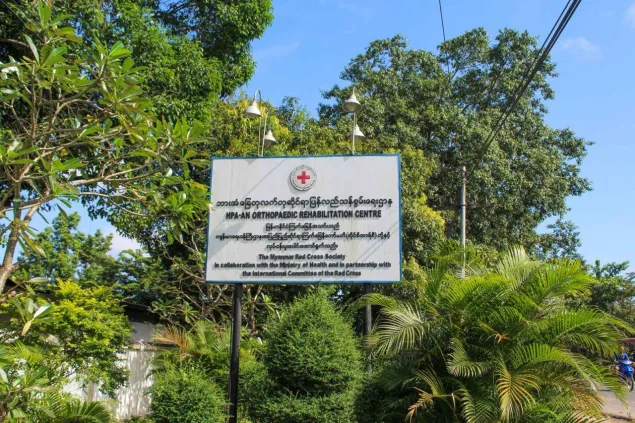
Hpa-An Orthopaedic Rehabilitation Centre (HORC) in Kayin State, Myanmar.
From humble beginnings to comprehensive care
Started in January 2003 with less than 30 staff members, the centre now has over 50 people in its workforce. In its early days, the centre provided only prosthetic services because of the lack of skilled technicians. However, as demand grew for a range of services, the staff were provided with training, both locally and internationally, to build their capacity. With the improved capacities, the HORC's services were expanded to offer orthotics, wheelchairs, physiotherapy services, mobile repair services for prostheses and a network of community repairmen.
In 2020, the centre also began providing mental health and psychosocial support to help service users and their caregivers overcome trauma.

Expanding services and empowering the community
The mobile repair services started in 2014 to help former service users who needed repairs for their prostheses but could not travel back to the centre. This initiative later led to the setting up of the community repairmen programme under which selected volunteers from the Red Cross Society, service users and volunteers from the community were trained.
In 2022, 875 people benefited from the mobile repair workshop and 556 people availed the services of community repairmen.
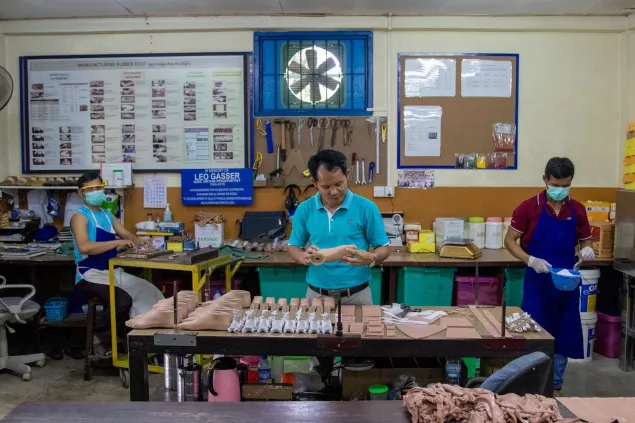
Saw Naing Naing Eh oversees the development of prosthetics and orthotics at the centre.
Utilizing local resources
Using local raw materials, including rubber, the HORC has been producing and even supplying high quality prosthetic feet. This has significantly reduced the production cost for prostheses and has also strengthened local capacity.
The research and development for this initiative began in 2012 and reached the standard quality target in 2014, following a rigorous process.
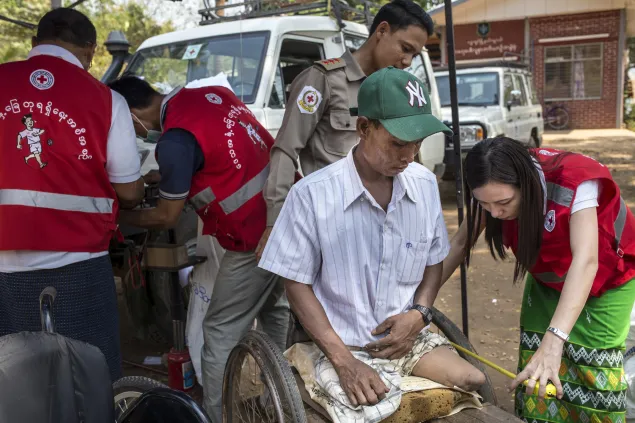
The mobile repair services started in 2014 to help former service users who needed repairs for their prostheses but could not travel back to the centre.
Promoting social inclusion
Among other things, the rehabilitation centre provides employment opportunities to former service users. Saw Shwe Ohe, who works at the centre as a security guard, says the job has helped him to be independent. "I have been working here since 2014. It is a great relief that I don't have to rely on my family for all my needs. I have also got married and look forward to growth in the future," he says.
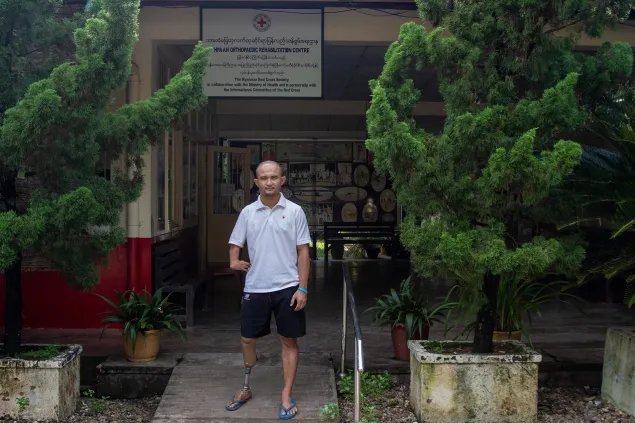
Saw Shwe Ohe, who works at the centre as a security guard, says the job has helped him to be independent.
Talking about the power of sports in promoting social inclusion of people with disabilities, Saw Naing Naing Eh, who oversees the development of prosthetics and orthotics at the centre, shares the story of Ma Ingyin Khin, an athlete. "She was brought to the centre when she was only nine years old and I fitted her with prosthesis. She has grown up to become an athlete competing at the ASEAN para games. It makes me feel proud to have been a part of her journey," he says.
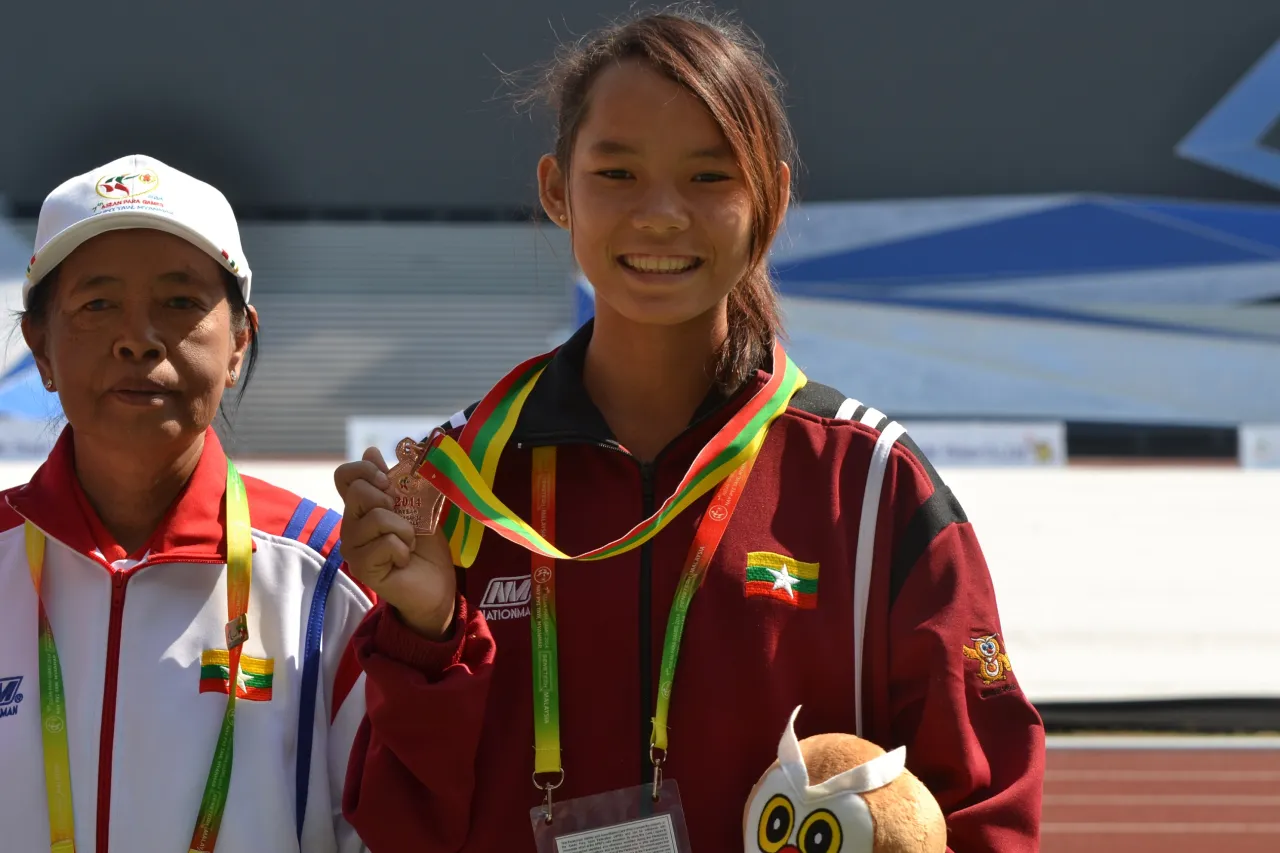
Ma Ingyin Khin who became an athlete competing at the ASEAN para games.
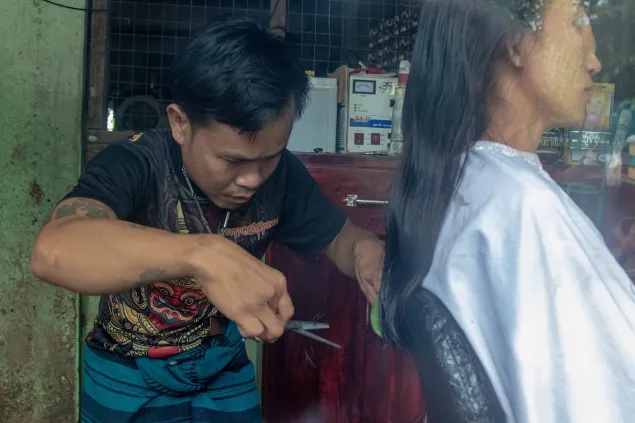
Ko Saw Chan Thar from Hpar Pu village in Hpa-An Township of Kayin State, received support through the ICRC’s microeconomic initiatives for people with disabilities to open a barber shop and generate a sustainable income.</h2>
The heart of the centre
Those who work at the centre vouch for the positive outlook promoted among the service users as well as the staff.
People with disabilities can often feel discriminated against and isolated. But at the HORC we see that they are able to relax and be themselves without any social pressures. Seeing them happy makes us happy as well.

Inspiring hope among users
U Khaing Swe, a 51-year-old resident of Kyaikhto town in Mon State who used to work as a supervisor at a wood mill, lost both his legs in a landmine incident in 2021. Struggling to cope with the physical and emotional trauma, U Khaing Swe came to the HORC in August 2022. He was provided with bilateral above-knee prostheses, physiotherapy, counselling and psychosocial assistance. "The services helped to significantly improve my physical and mental well-being. Now I look forward to the future. I want to drive a motorbike taxi to support my family and share crucial landmine safety messages with others in my community," he says.



